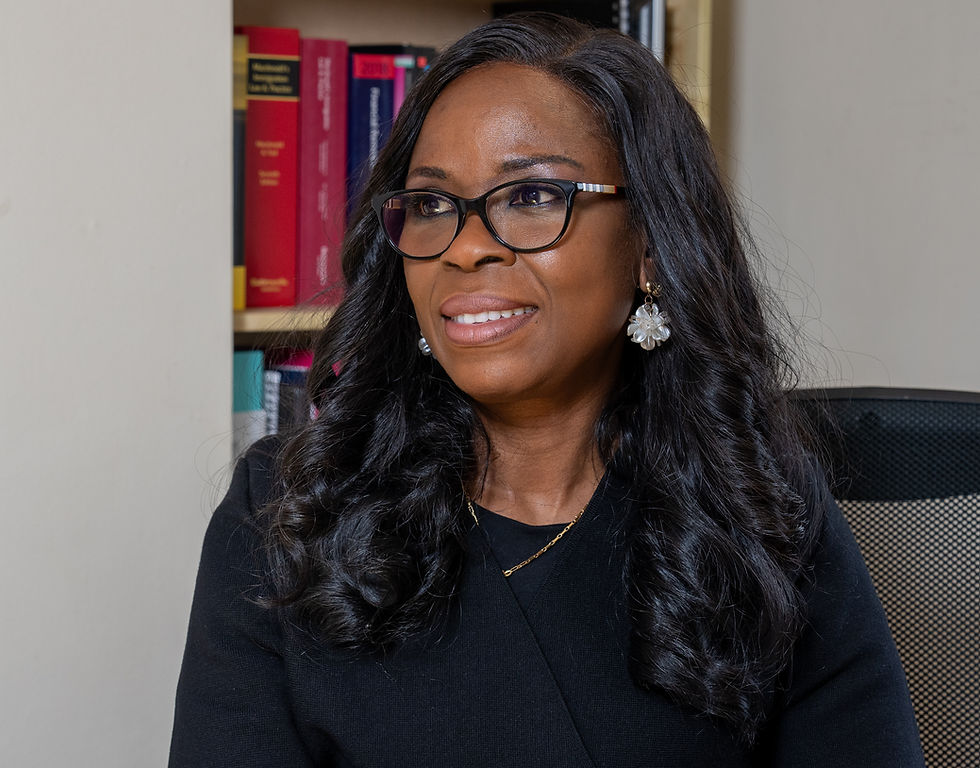Julie Hunt, Managing Director, Face to Face Finance, and The Money Compass
- robbarratt4
- Sep 17, 2021
- 5 min read
Updated: Nov 24, 2022

The Industry Leaders learns from Julie Hunt, the Managing Director of Face to Face Finance, and the podcast, The Money Compass, about how she chooses to use her leadership position to empower others in the finance industry.
How did you end up sitting where you are today?
Having worked my way up in the finance industry, becoming a qualified IFA at the age of 24, it was during a trip to St Kilda in the Outer Hebrides in 2002 that I began to hatch a plan to become my own boss, setting up Face to Face Finance in 2004.
Since then, I’ve set up and run over ten businesses, and am now on a mission to help empower female business owners to secure their own financial futures by educating them through The Money Compass podcast and Facebook group.
What kind of work does your role involve?
Being Managing Director at Face to Face Finance remains my most significant role. As a team, we help individuals and businesses to make the most of their money, offering advice on investments, pensions, protection and more. The welfare of my team is really important to me, so a lot of my time is also invested in supporting their development and finding fun ways that we can all celebrate our achievements!
At The Money Compass, my role is about sharing information and making often-complicated topics accessible and engaging. I also offer one-to-one coaching to help women navigate their way to financial success.
What gets you excited about your industry?
There’s often a view that the finance industry can be a bit stuffy and dated. But there’s lots of exciting stuff going on out there – technology has opened a lot of new doors. For example, we’re now offering a non-advised service, Face to Face Digital, alongside our core business, which really lowers the barriers in terms of taking a step into the world of investing. The Money Compass Facebook Group, another digital platform, allows us to help people all over the world!
The thing I really love about these opportunities is that I think they hold the key to getting people interested in their finances from a younger age – the earlier you start, the better chance you have of achieving your financial goals.
What's the best advice anyone ever gave you?
Many years ago, my brother-in-law gave me the advice that “you can never fire enough staff”. Now that may sound a bit harsh, but what he was essentially telling me was to fail fast. If someone isn’t the right fit for the team, then it’s better for both parties to move on sooner rather than later. You need to give people a chance, of course, and part of being a leader in business is finding the right way to support all the individuals on your team, but if it’s really not working, it’s important to not be afraid of taking action.
How do you support aspiring leaders in your field?
I encourage all of our support team at Face to Face to undertake training to gain industry qualifications whilst they work – they’re one of the most qualified support teams you’ll find in our sector! That also gives them a taste of whether they’d like to progress further in the business.
One of our team recently became a fully qualified IFA after shadowing one of our advisers and working her way through all the necessary exams – she’s also one of the team presenting our podcast, helping to get her name out there. Some of our team started with us as apprentices; I love being in a position to give young people a great start in their career.
How do you keep up to speed with what's happening in your industry?
Working in the financial services industry means that change is a regular occurrence: changes in regulation, compliance requirements, and with technology. I keep up to date with regular CPD training, and keep my finger on the pulse through regular communication with my peers in the industry.
What was the most challenging project or situation you've overcome?
2020 was a challenging year for everyone. My team is office based, with consultants out visiting clients on a daily basis. As lockdown loomed, the logistics of getting everyone set up and working from home was challenging.
We had to think about how the parents on the team would manage alongside homeschooling their children, and how we would communicate with our clients, many of whom are elderly and not very technologically savvy. I was proud of the way that the whole team handled the situation, and at 8am on the 24th of March we opened “as normal” from our remote locations. We arranged daily “pow wows” to ensure everyone had lines of communication with the team.
You finish work today and step outside the office to find a lottery ticket that ends up winning $10 million. What would you do?
With that amount I could make a difference in many people’s lives. I sponsored a Tibetan nun’s education, and, when she graduated, it felt so great that I’ve decided to do it again. Just think how many women I could help through their education with that much! From a work perspective though, I would be able to invest in the team to help them transform their lives. And then, of course, travel the world!
How do you define failure?
Good question! I don’t see failure as a negative thing. I have a client who does amazing things with medical science technology; it’s really fascinating, and very complicated. However, the gist of it, which I love, is that each piece of research that doesn’t succeed helps to point the research in the right direction towards its end goal.
Just because you have failed at something doesn’t mean you are a failure, it’s just the universe narrowing down the direction you need to be moving in.
If you had one wish for the future of your industry, what would it be?
As an industry, we fund the Financial Services Compensation Scheme – when someone invests in something not regulated, and is wooed by something which is clearly too good to be true, only for it all to go wrong, they come to the regulator and ask for their money back. That cost is passed to those of us who have worked hard, passed all the correct exams, and adhere to a strict compliance background.
I don’t think that this is fair.
My wish would be that a different system is put in place. I can’t see how having a world where there are no consequences when you make mistakes can help anyone.
What book or podcast should everyone know about?
The Money Compass podcast! There’s lots of useful information on there to help people better manage their own finances. We also have special guests on to talk about their related areas of expertise, and to chat to guests about their money journeys.
Also, keep your eyes peeled for my book, coming in September 2021, which shares all the knowledge I’ve built up over 20 plus years in the finance industry.
And anyone with kids should check out Eddie Teddie’s books. Eddie is our Director of Happiness and helps us gently educate children about the importance of looking after money. He has two books with another coming this autumn!
How should people connect with you?
*If you want to thrive in a business or career, join like-minded people by applying for The Industry Leaders membership.
**Ever wondered what kind of leader you are? Take our free quiz to find out.






















